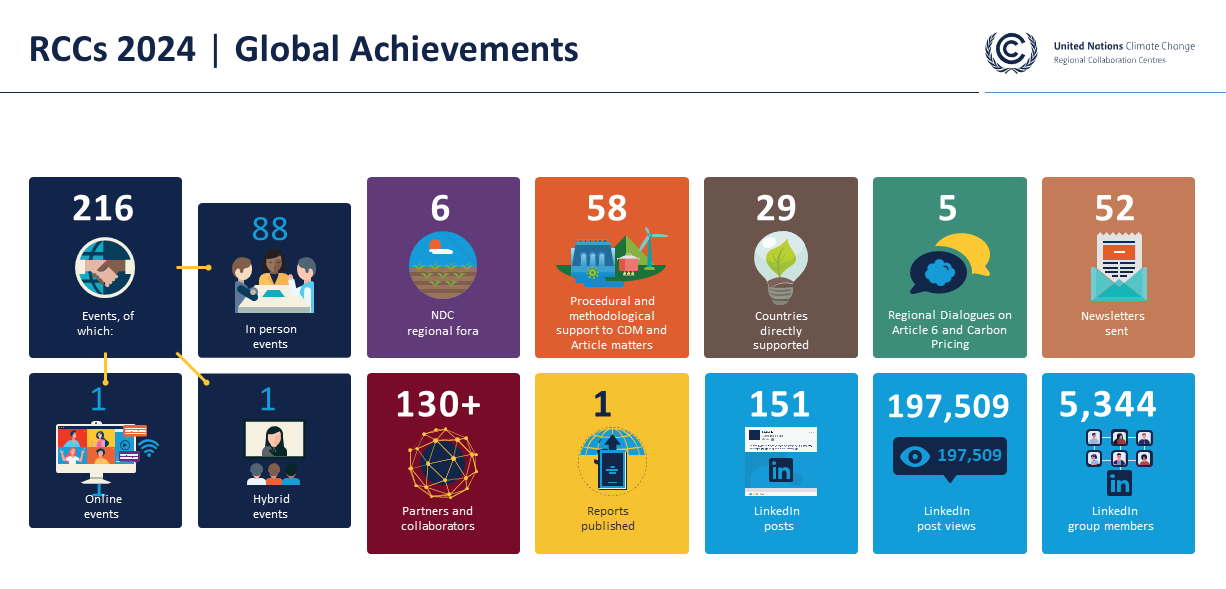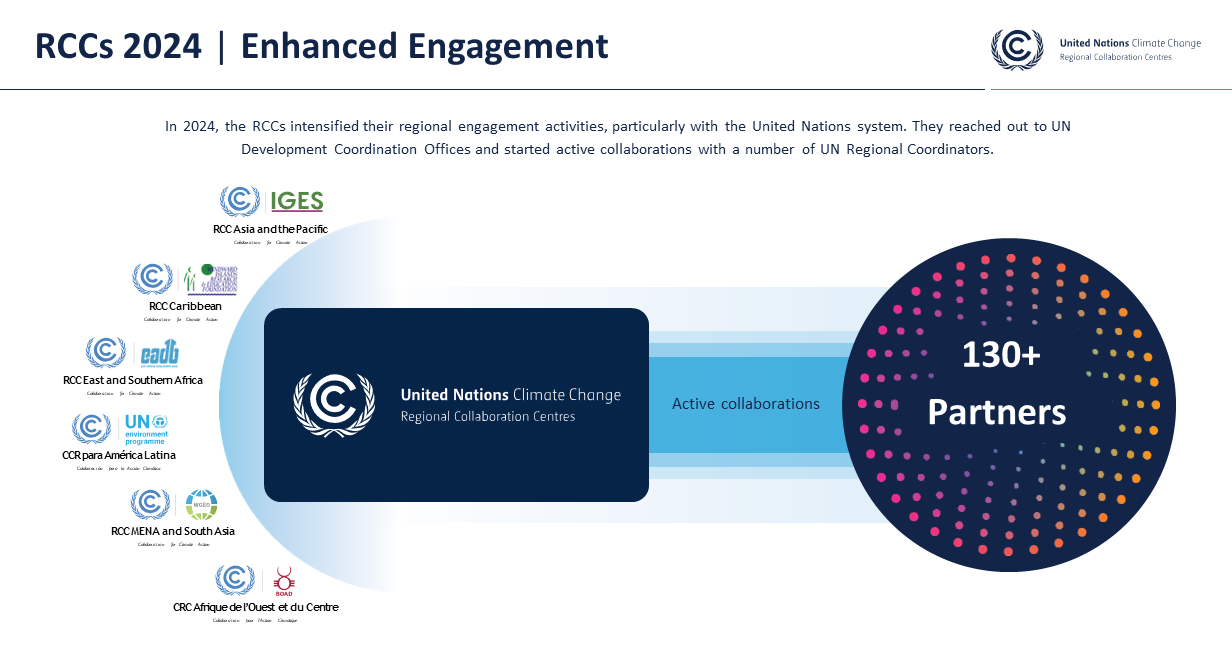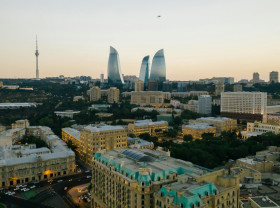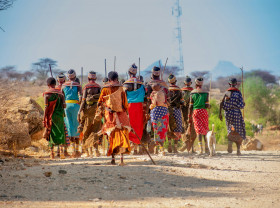Bonn, Germany, 30 April 2025 – The UN Climate Change Regional Collaboration Centres (RCCs) have published their 2024 Annual Activities highlights, showcasing a year of impactful initiatives and strategic partnerships that have supported countries in advancing their climate goals under the Paris Agreement.
In 2024, the RCCs played a pivotal role in providing technical assistance and capacity-building to countries, facilitating support to the development and submission of the new round of national climate plans (NDCs 3.0). RCCs were also crucial in both advancing the operationalization of and ensuring countries’ participation in cooperative approaches to reduce greenhouse gas emissions as laid out in Article 6 of the Paris Agreement.
Furthermore, the RCCs strengthened their support in adaptation-related matters, preparing to step-up support for the formulation and implementation of National Adaptation Plans (NAPs). By working closely with national governments, private sector actors, and multilateral institutions, the RCCs offered tailored training, knowledge-sharing opportunities, and policy guidance to meet regional needs.
Simon Stiell, Executive Secretary, UN Climate Change, said: “RCCs are at the heart of our collective effort to address the climate emergency. They provide technical assistance to countries, facilitate the sharing of knowledge and good practices, deliver training and organize hands-on support. They also build, activate and strengthen robust regional networks, engaging and connecting partners from the private sector, multilateral banks, the UN wider system and other entities to accelerate climate action. This report demonstrates the 2024 results achieved by our RCCs and the wealth of partners we are proud to work with.”
Key Priorities and Achievements
The RCCs focused on several key areas in 2024:
- Regional platforms and partnerships: The RCCs engaged with regional partners, including UN Resident Coordinators, UN Regional Offices, non-Party stakeholders, multilateral banks and more to create cohesive platforms supporting countries across RCC regions. The RCCs are also participating in UN Issue-based Coalitions in their respective regions.
- NDC and LT-LEDs support: The RCCs assisted countries in developing and implementing their Nationally Determined Contributions (NDCs) and Long-Term Low-Emissions Development Strategies (LT-LEDs) through capacity-building workshops, webinars, and technical support. These include for example the six NDC Fora organized with key partners, amongst many other events and webinars across the six regions. Direct support to countries was also provided. For example, Cambodia benefited from support to align their NDC with other national policy processes, such as its NAP; while Guatemala’s capacity was strengthened ahead of its NDC 3.0 implementation.
- Article 6 participation and Carbon Pricing: The RCCs supported countries’ participation in Article 6 collaborative approaches and mechanism with customized technical assistance, institutional framework development, and the crafting of support knowledge products, such as a feasibility study on carbon pricing instruments in Cameroon. Direct country support came in the form of specific assistance on Article 6 readiness in Sri Lanka, and support to the Dominican Republic in advancing the development of their emissions trading system pilot framework, among other examples. Countries also benefitted from the Regional Dialogues on Article 6 and Carbon Pricing series, which are continuing into this year.
- Transparency efforts: The RCCs partnered with various organizations such as the Capacity-building Initiative for Transparency - Global Support Programme (CBIT-GSP) for example, to raise awareness of the reporting requirements under Article 6 in Latin America or to support the preparation of Biennial Transparency Reports (BTRs) under the Enhanced Transparency Framework (ETF). The RCCs also supported BTR submission efforts of countries such as Nigeria and Cote d’Ivoire, among many others; and assisted in training programmes for ETF implementation and transparency clinics offered at COP29.
- Adaptation support: The RCCs supported countries with the formulation and implementation of NAPs through regional capacity-building, such as in the Asia-Pacific. Chad and Sierra Leone benefited from direct support, while dialogues on NAPs were led in Eritrea, Tanzania and Uganda to assess the status of NAPs and more.
- Multi-Stakeholder Collaboration: The RCCs facilitated collaboration with civil society, private sector, youth and other non-Party stakeholders to enhance contributions to climate action and integrate their perspectives into regional and global climate processes. For example, RCC Latin America (LatAm) reached a partnership agreement with the Center for Clean Air Policy (CCAP) to develop a platform on the scope of Article 6 for countries in the region. RCC LatAm also engaged and collaborated with the Guatemalan Sugar Producers Association (ASAZGUA) and the Latin American Sugar Producers Union (UNALA) to support the region in implementing effective climate action. A multi-stakeholder collaboration with the School of Policy and Governance (SPG) and Uganda’s Ministry of Water and Environment was facilitated in East and Southern Africa to enhance NDC implementation by integrating climate policies into national development.
2024 in Figures
In the twelve months of 2024, the RCCs organized or co-organized 216 events, of which 88 were held in-person, 111 were online and 17 were in hybrid mode. These include 6 NDC Fora and 5 Regional Dialogues on Article 6 and Carbon Pricing.
Driving Global Climate Action Through Regional Collaboration and Strategic Partnerships
Most importantly, the RCCs collaborated or partnered with over 130 entities to maximize efficiency and support countries in their efforts to implement the Paris Agreement.
About the Regional Collaboration Centres (RCCs)
Since 2013, UN Climate Change has established six RCCs around the world. These Regional Collaboration Centres partner with regional host organizations to mobilize networks and enable climate action.
The RCCs cover 143 countries in six regions. They are located in:
- Asia-Pacific (Bangkok, Thailand) – in partnership with the Institute for Global Environmental Strategies (IGES)
- The Caribbean (St Georges, Grenada) – in partnership with the Windward Islands Research and Education Foundation (WINDREF)
- East and Southern Africa (Kampala, Uganda) – in partnership with the East Africa Development Bank
- Latin America (Panama City)
- Middle East, North Africa and South Asia (Dubai, United Arab Emirates) – in partnership with World Green Economy Organization (WGEO),
- West and Central Africa (Lomé, Togo), in partnership with the Banque Ouest Africaine de Développement.





